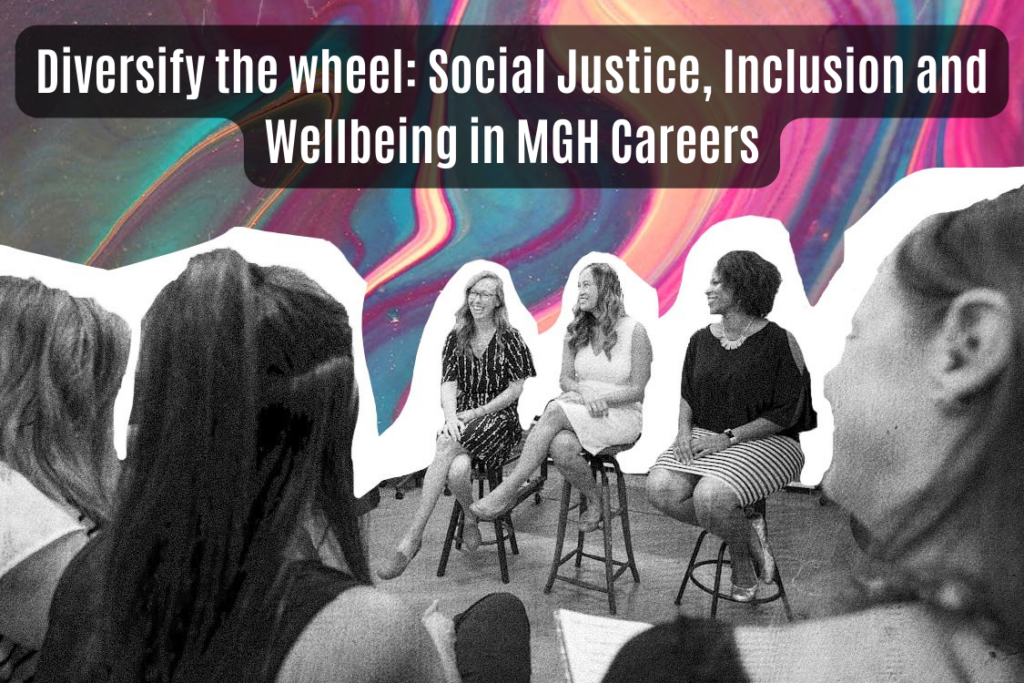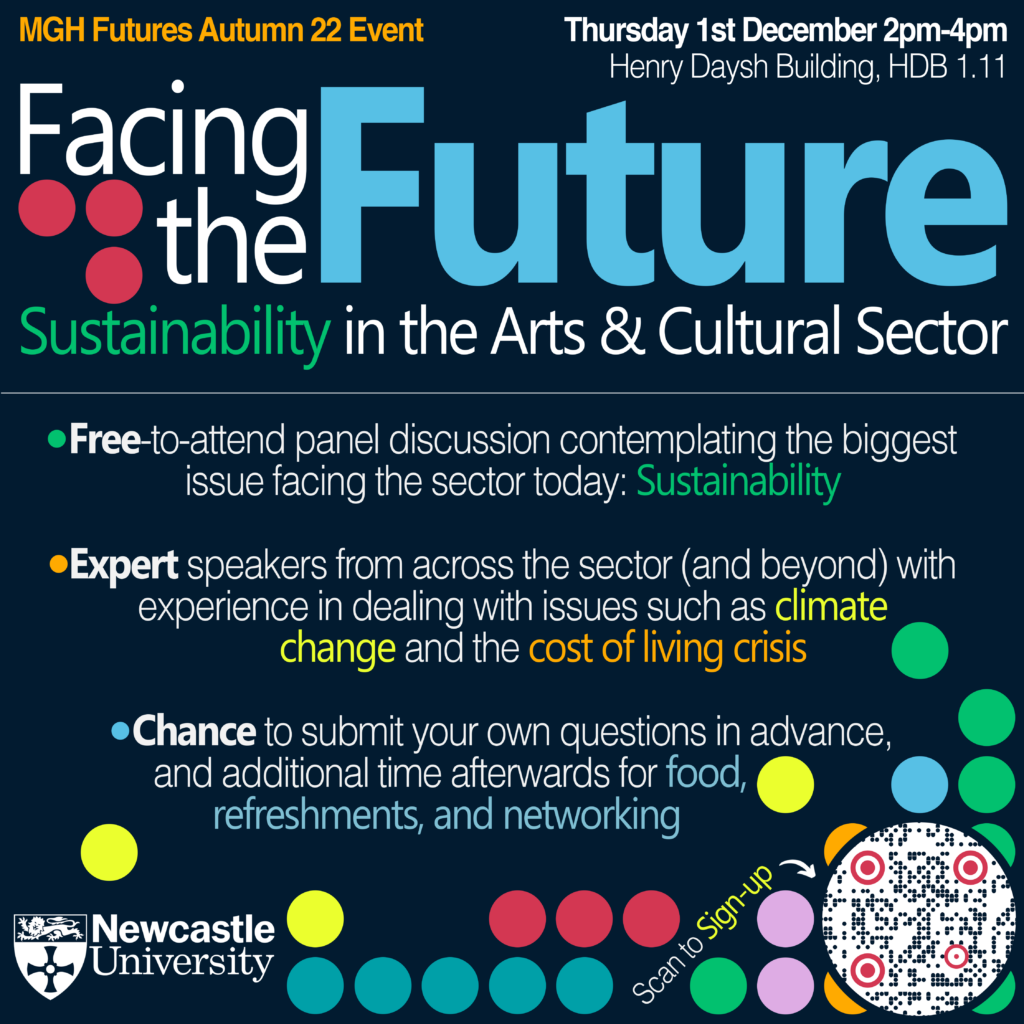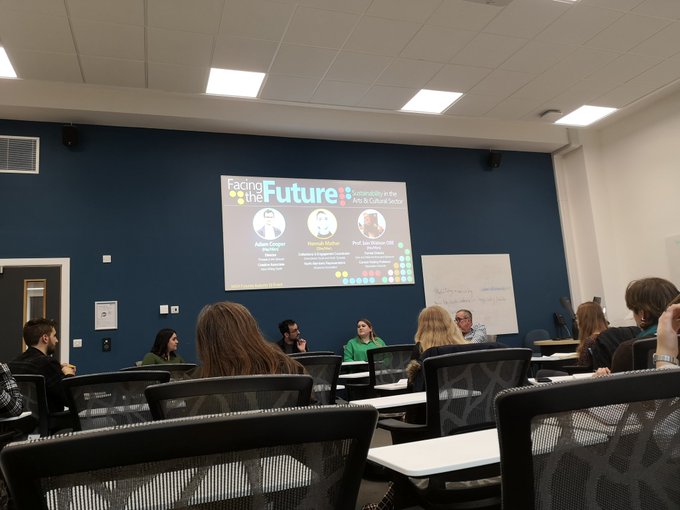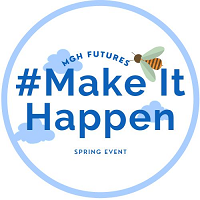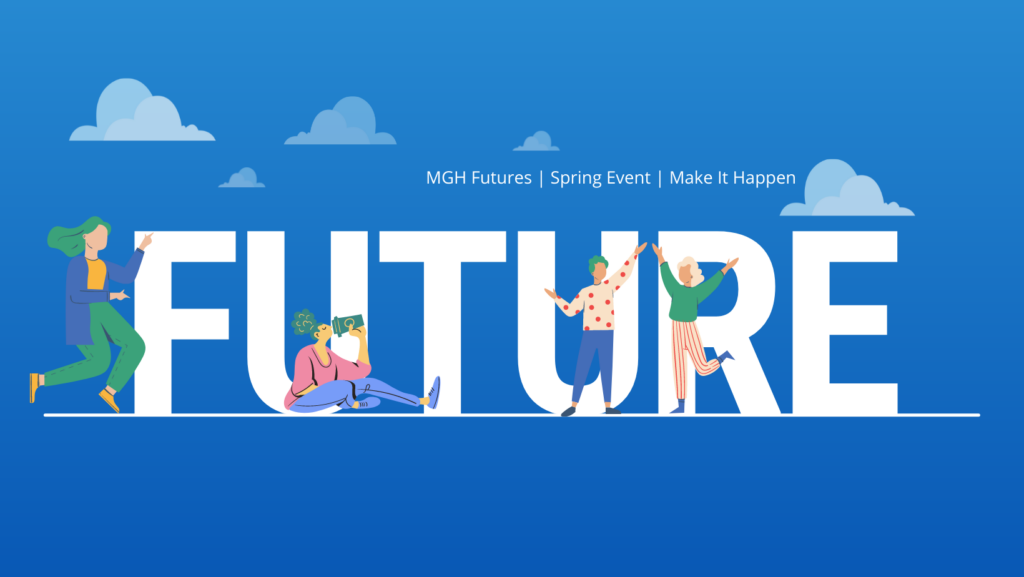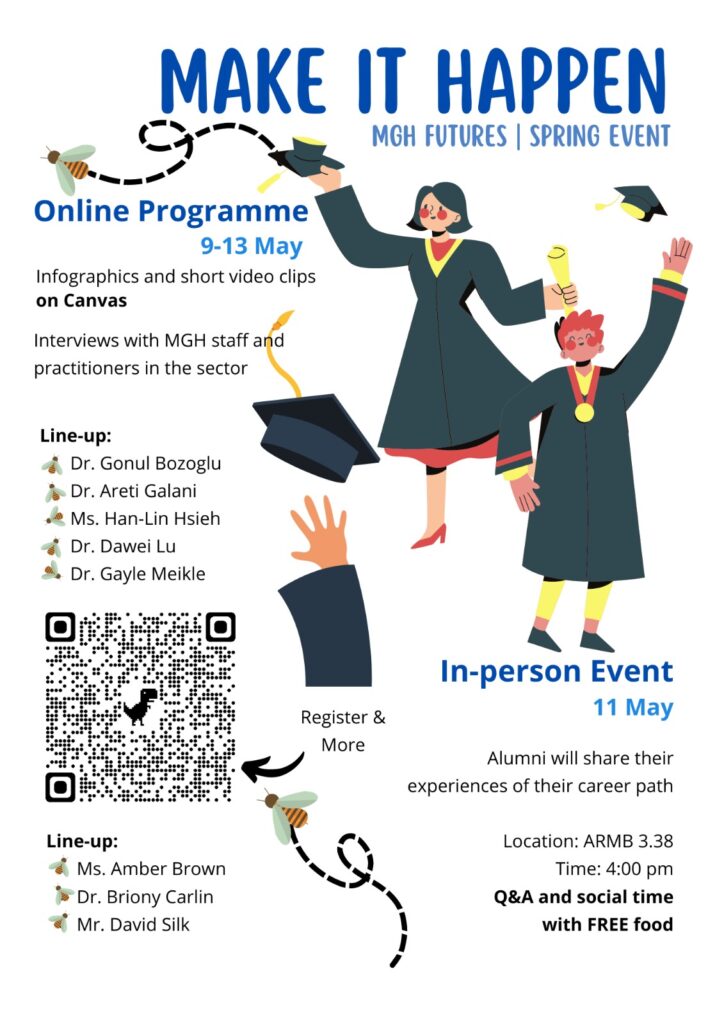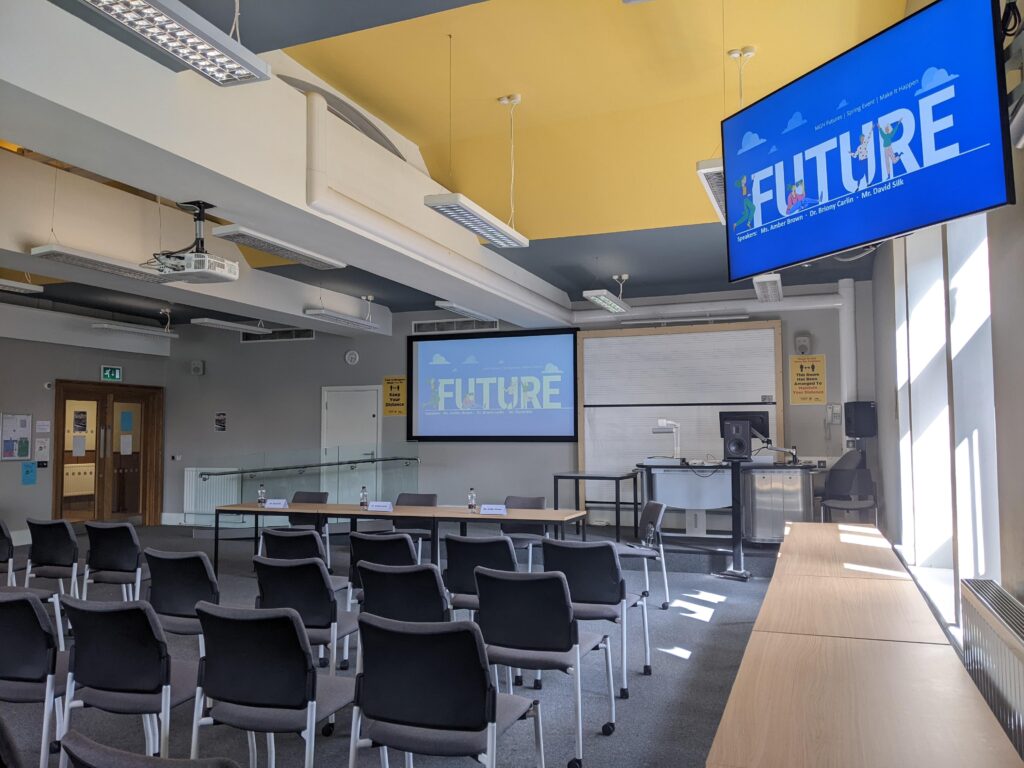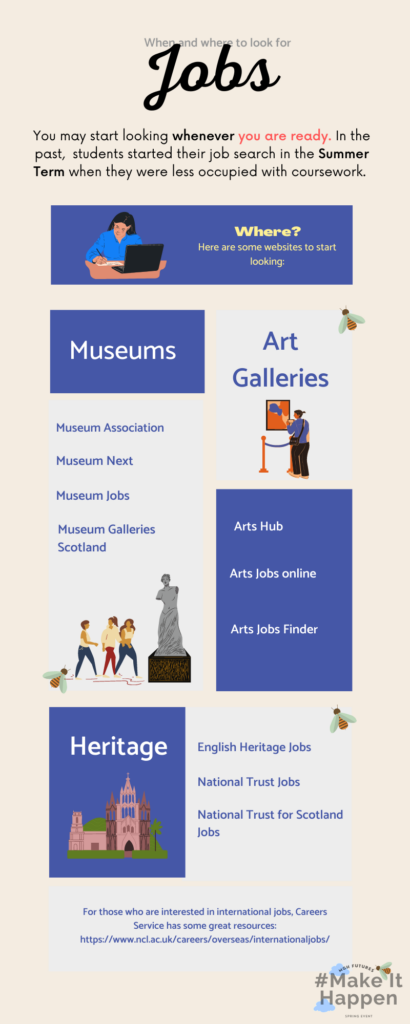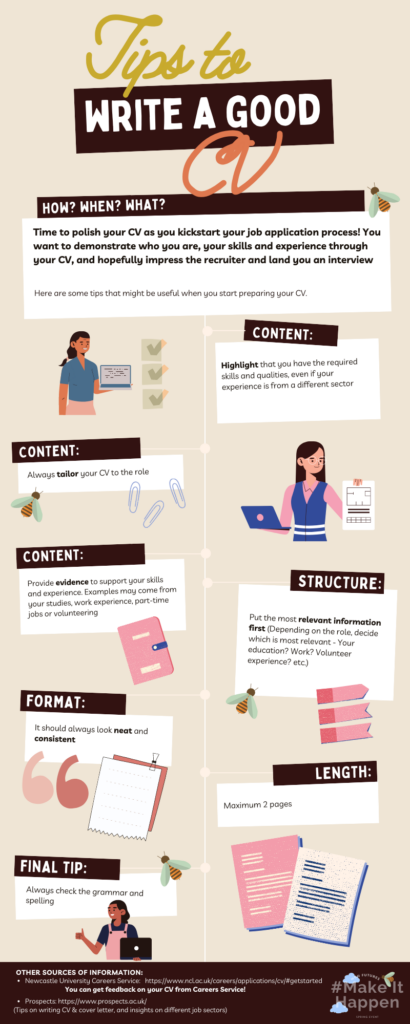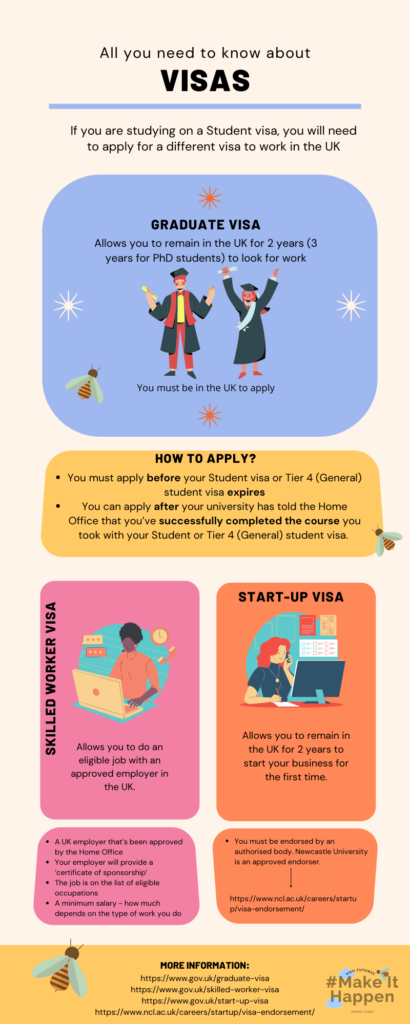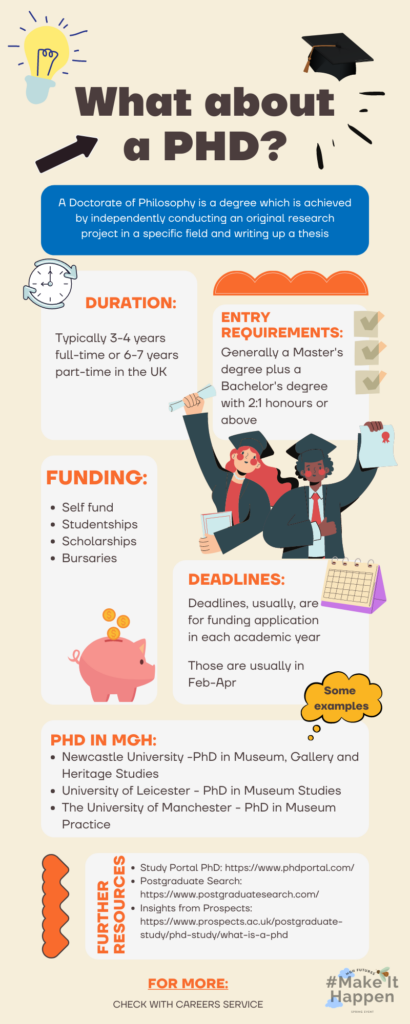This is the first in a series of research blog posts focusing on questions and topics relating to employability in museums, arts and heritage careers, written and developed by Christine Bruce, MGH Futures Programme Facilitator and student on MA Museum Studies.
No one can deny the importance of social media and having a digital presence in this day and age. Companies, of all kinds, should be where their audience is. And According to GWI, 59% of the world population is on social media, spending an average of 2.5 hours a day on a digital platform. Having a social media presence helps you learn about your target audience, create a connection with your audience, boost awareness of the company, and build social and digital capital.
But I don’t have to tell you that. You’re a student, or a recent graduate, or someone who has basically grown up with a social media presence. You might use social media often, or hardly at all, but you understand the concept. You understand the perceived value of it. You might use it, and therefore- according to your parents, your boss, or your co-worker- you’re an expert.
This is particularly true in the cultural sector where money is tight, and the marketing team might be short-staffed if it exists at all. In every museum I’ve worked at, the team of full-time employees was at most about 10 people. Only one museum had a marketing department, and at another museum I was told I was in charge of marketing in addition to a myriad of other responsibilities despite having never taken a single marketing course or partaking any experience in the field.
It’s not uncommon for cultural institutions to see a young person and assume they’d be perfect to run the social media of a site. “You use social media; you have an Instagram. Run ours!” That’s a problem though. Let’s be honest, if we knew how to successfully market and run a TikTok account, we’d be an influencer jet setting around the world, not working full-time hours for part-time pay.
When the request is asked of us, it almost always comes with the understanding that if we don’t do it, it won’t get done. As one current graduate student put it, “I didn’t feel pressured to do it, but I knew it wouldn’t get done otherwise.” The guilt of that is put upon our shoulders, and we’re left feeling like something on the social media account is better than nothing.
What then ends up happening is an already overworked employee or volunteer spends too much time and effort on an ineffective design that barely pulls any engagement. Time that could have been spent better; creative energy that could have done something useful. A frustrated employee or volunteer is left defeated and the museum has benefitted nothing.
But a social media account isn’t just a general marketing tool. As the past five years have taught us, it also plays an important role in accessibility, outreach, and democratization. It can become another arm of the museum’s mission statement, or it can be a way to increase education reach. Social media is more than posting a photo, regardless of energy spent, and calling it a day. It’s also more than just marketing or product placement. It’s an opportunity to converse with an audience that can’t visit, or to share ideas and education about artifacts, or inspire viewers to create their own art. It can be something great, in the tools of the right person.
It’s so important for the social media and online presence of cultural institutions to employ trained professionals in those positions of outreach. That said, we know many of these facilities won’t have the funds to do so for a long time to come. I recommend that museum, gallery, and heritage students become savvy at how to best utilize an online presence. Afterall, a good marketing approach and social media content will inspire giving, participation, and attendance. All factors that could increase funds to the facility and one day allow them to hire specifically for a marketing position.
To make yourself more marketable in the current cultural institution climate, learn marketing, particularly digital marketing. Not only will you feel more confident signing into socials, but also in answering queries and creating content that does well. More importantly, though, is to learn how to use the social media accounts as a secondary landing to spread the mission and goals of the institution.
Take classes about digitalization in the sector, or about accessibility in the modern digital age could be game changers for a student who’s never taken a business class. That said, a class about social media marketing is something you’d for sure want to include on a CV. Regardless of trending sounds and popular memes, knowing marketing basics is something that could set you apart in the sector.
It’s a frustrating situation to be in, but it’s an issue that isn’t going away any time soon. Being able to build a marketing strategy, being able to make content in conjunction with the mission, and being able to design educational material that inspires people to interact with your site are skills that will not only set you one step ahead, they’ll also make your job easier.
Sources:
https://www.business.com/articles/social-media-to-grow-business
https://bigsea.co/ideas/museum-marketing-tips
https://www.museumnext.com/article/museums-can-use-social-media
https://www.statista.com/statistics/485058/arts-and-cultural-industry-workforce-in-england-uk-by-age
Interview with Ellie Denton, Museum, Gallery, and Heritage Studies graduate student at Newcastle University.
Interview with Tim NesSmith, ship superintendent of the USS KIDD in Baton Rouge, LA.
Interview with Museum, Gallery, and Heritage Studies graduate student who preferred to not be identified.

